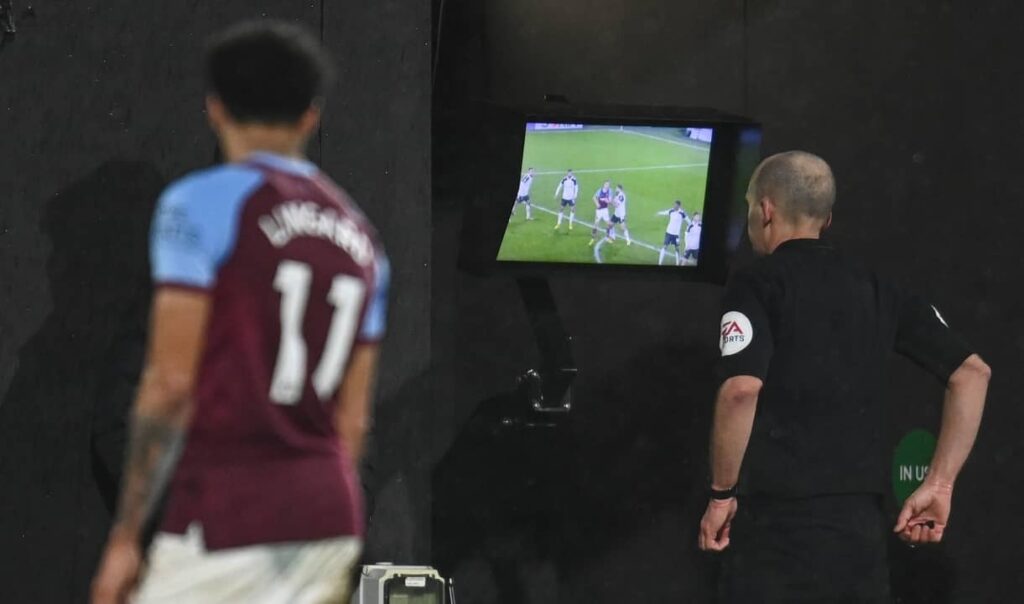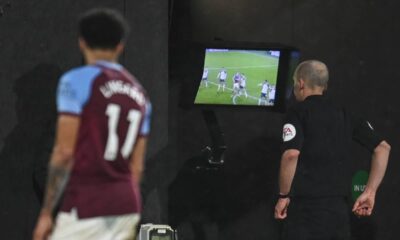Football
Gloss: VAR the way we want it! Euro is the first major competition where video refereeing is to the advantage
It has been almost three years since VAR has been a part of our football lives. Expectations were high. Errors are being ironed out, responsibilities are being shared among more people, and so on… In the end, however, the video referee is more of a liability.

It has been almost three years since VAR has been a part of our football lives. Expectations were high. Mistakes are being ironed out, responsibility is being shared among more people, and so on… In the end, however, the video referee is more of a liability and even its original pioneers are calling for its removal. Will the Euro help change public opinion?
The VAR system first appeared in a major football tournament three years ago at the World Cup in Russia. I remember in perhaps every one of the opening matches, a penalty was whistled after a video referee’s review.
However, most of them were correctly whistled, the stretching of the game wasn’t seen as much back then and the video referee had his first major championship.
The big trouble didn’t start until the Premier League. He was enshrined in England’s top league for the 2019/20 season and didn’t bring much goodness. The game is incredibly drawn out, with referees often changing their minds after a few minutes of viewing in what is almost a 50/50 situation.
During this season everyone, myself excluded, has run out of patience. Even the original fans of VAR are starting to call for its complete abolition. There are opinions that it is destroying football and it looks like something is finally starting to change.
A slightly different approach has been seen in the knockout stages of the Europa League. There, because of the different format, unlike in league competitions, the rules can be changed slightly during the course. The game was a lot smoother and VAR did not interfere too much.
This was also experienced by Sšiovans, whose frantic journey through Europe was interrupted only in the last match against Arsenal.
VAR at the Euro
This year’s postponed European Championship perhaps finally shows that we have moved on in the evolution of football video refereeing. Maybe my opinion is influenced by great whistling referees, but I suddenly want VAR in football.
It was used excessively during the season and we complained. Then came the few match qualifiers in March where VAR was absent. That, on the other hand, showed us its necessity as one notch after another was played out on the pitches.
Then the U21 Euros continued in a similar vein and we found ourselves in a seemingly intractable situation. VAR in its current form spoils football, but it is essential for fairness.
Now, however, UEFA has shown that the problem is far from unsolvable. After several years, radical changes have come. VAR only does its duty to correct clear misses by its colleagues on the pitch.
Thus, they intervene in matches practically only in offside situations and do not correct the head referee’s decisions regarding fouls almost at all. Just look at the Czech Republic vs Scotland game.
I’d be willing to bet that even Bořil’s goalmouth intervention would require a referee in the Premier League to go watch a monitor. After a few minutes of painstaking viewing, he would then confirm his opinion and play on.
For me, Tuesday night’s match between Germany and France was a beautiful example of how VAR should be used. One of the highlights was Mbappé’s sprint, which was cut short by a hard slide by the onrushing Mats Hummels.
The referee, also after a sprint of a few metres, saw the situation, dismissed the ball, turned around and, with the game flowing beautifully, resumed his mission. And after the analysis of the experts, it looks like he made the wrong decision.
Even though the German stopper touched the ball, he acted illegally during his spectacular slide and the penalty should have been whistled. However, it was not too clear-cut.
That’s also why VAR decided not to intervene in the situation, even though – I’ll repeat myself – after a few minutes of observation the referee would probably have changed his mind. But is this what football is all about?
I will also point out that the only intervention in the game was the video referee’s correct disallowance of Karim Benzema’s goal when the linesman overlooked a clear offside by Mbappé.
The referee at the tournament doesn’t treat every harsh foul as a “potential red card”, doesn’t review every goal situation for a minute or two even though there is no reason to do so, nor does he force the referee to change his decisions even though he often can’t even get the decision right.
And this is what gives me confidence in a system still relatively new in football. Even in the Premier League, reforms such as a thicker offside line are on the way for the new season and it looks like video refereeing in football, as it has been in other sports for many years, will finally be beneficial and not the other way around.
Sources used: Mirror












